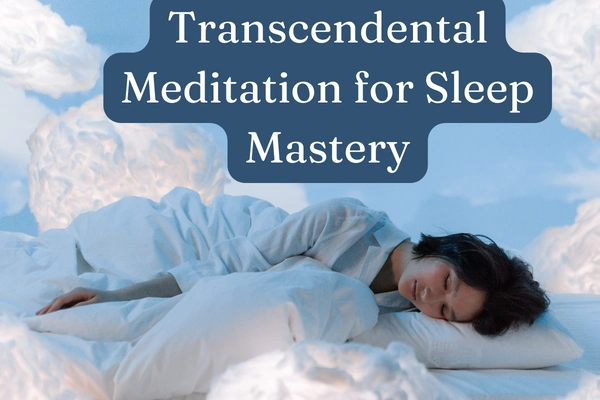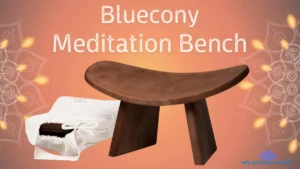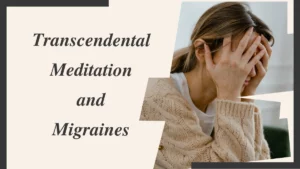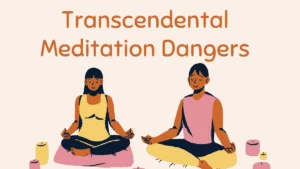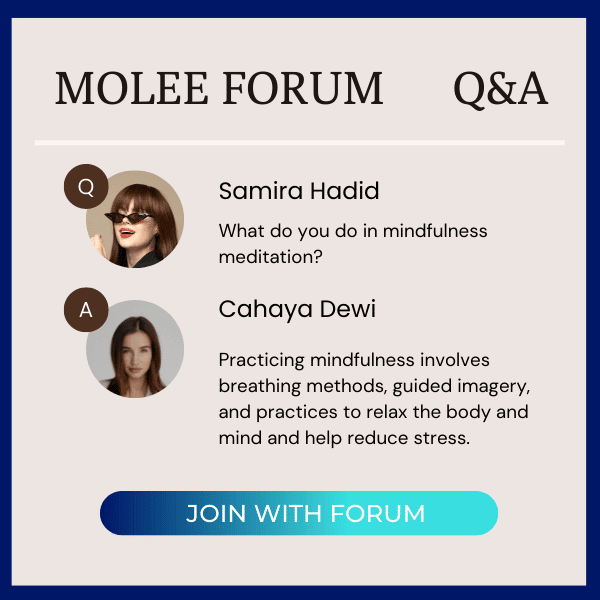Table of Contents
- Importance of Sleep and Mental Health Connection
- Understanding Transcendental Meditation for Sleep
- Sleep Patterns: The Symphony Within
- Benefits of Transcendental Meditation for Sleep
- Exploring Guided Transcendental Meditation for Sleep
- Transcendental Meditation vs. Power Nap
- Concept of Non sleep Deep Rest
- Integrating Transcendental Meditation Technique into Sleep Routine
- Scientific Insight into Effects of the Transcendental Meditation on Sleep Patterns
- Conclusion
- FAQs on Transcendental Meditation for Sleep
In today’s fast-paced world, getting a good night’s sleep can be a challenge for many people. The use of medication or other methods to induce sleep can have negative side effects.
Transcendental meditation, however, offers a natural and effective way to improve sleep quality. This ancient technique involves sitting comfortably with closed eyes and silently repeating a mantra.
Many practitioners have reported that transcendental meditation helps them to relax and achieve a deeper state of rest, leading to improved sleep patterns.
In this article, we will explore the benefits of transcendental meditation for sleep and how it can improve overall well-being with the results of scientific researches have done in this domain.
Importance of Sleep and Mental Health Connection
Understanding the significance of sleep in your life is like recognizing the fundamental role of a sturdy foundation for a building. It’s the cornerstone that supports your mental and physical health.
Imagine a night when your mind, like a diligent librarian, sorts and files away the day’s events and learning. Sleep is not just about closing your eyes; it’s when your body recharges, repairs, and prepares for the day ahead.
Here’s a glimpse of what sleep brings to your life:
Mental Clarity: Sleep helps your brain function better. Think of it as a tidy workspace where your mind can efficiently sort thoughts, solve problems, and make decisions.
Emotional Stability: Ever felt grumpy after a restless night? Lack of sleep can mess with your mood. A good night’s sleep can be the secret sauce for a happier, more balanced you.
Physical Health: Sleep isn’t just for your brain; it’s for your body too. It’s the time when your body heals, repairs tissues, and boosts your immune system.
Stress Management: A good night’s sleep is like hitting the reset button. It helps you tackle the day’s challenges with a clearer mind and a stronger body.
In summary, sleep isn’t a luxury; it’s a necessity for a healthier, happier you. But what if achieving that peaceful slumber seems elusive?
That’s where transcendental meditation steps in, offering a potential solution to the quest for a night of deep, restorative sleep.
Read our full article on how transcendental meditation used for autism relief.
Understanding Transcendental Meditation for Sleep
In this section, we delve deeper into how Transcendental Meditation (TM) intertwines with sleep and explore its influence on relaxation, sleep patterns, and the relationship between TM and conventional sleep.
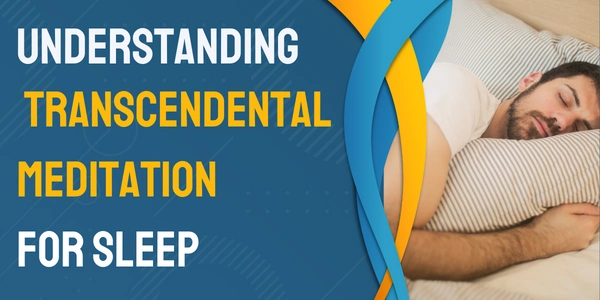
Mechanism of Relaxation through TM
TM serves as a gentle guide into a state of relaxation by encouraging a shift in focus from the turbulence of daily thoughts to a serene mental space. This technique fosters a sense of tranquility akin to a mental retreat, allowing the mind to settle into a calm state of restfulness.
TM vs. Sleep: Comparative Analysis
| Aspect | TM | Sleep |
| Purpose | Augments relaxation, complements sleep | Natural bodily process |
| State of Mind | Calm, alert awareness | Unconscious state of rest |
| Time Investment | Short sessions (minutes) | Longer duration (hours) |
| Physical Rest | Deep rest without sleep’s unconsciousness | Unconscious and physical rest |
Sleep Patterns: The Symphony Within
Just as the human body orchestrates various functions, sleep is a symphony with distinct movements, each crucial for overall harmony. Here are the different stages of sleep.
Light Sleep – Prelude to Rest:
This initial phase of sleep is akin to the body’s warm-up exercises. Hormonally, it’s marked by a drop in cortisol levels, allowing your body to relax. Here, your body temperature and heart rate begin to decline, signaling the entry into a state of restfulness. Hormones like prolactin and serotonin play pivotal roles in calming the body and preparing it for deeper stages.
Deep Sleep – The Restorative Composition:
Deep sleep is the composer’s masterpiece. It’s when the body undergoes physical restoration, repair, and growth. Hormones like growth hormone (GH) are secreted, aiding in tissue repair and muscle growth. Additionally, the body’s immune system gets a boost, thanks to the increased production of cytokines, the body’s infection fighters.
REM Sleep – The Creative Movement:
This stage is where dreams paint their vibrant canvases. The brain is highly active during REM sleep, processing emotions and consolidating memories. Here, neurotransmitters like acetylcholine help regulate brain activity, and the body experiences temporary muscle paralysis to prevent acting out dreams.
TM’s Influence on Sleep Patterns: Harmonizing the Symphony
Transcendental Meditation (TM) acts as the conductor, fine-tuning this intricate symphony of sleep patterns. With regular TM practice, the body gradually synchronizes into a more harmonious rhythm during these stages. The restful state induced by TM might aid in experiencing longer duration of each sleep stage, enhancing the body’s ability to rejuvenate and heal during these essential sleep cycles.
Benefits of Transcendental Meditation for Sleep
In this section, we uncover the array of benefits that Transcendental Meditation (TM) offers specifically in improving the quality of your sleep.
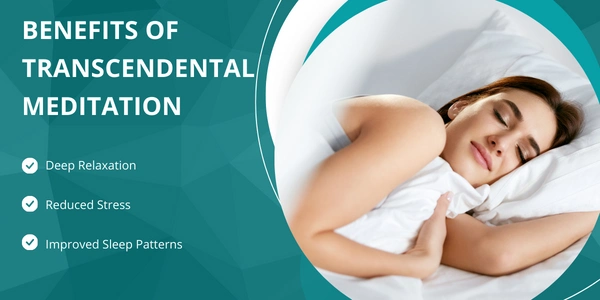
Deep Relaxation:
TM facilitates a profound state of relaxation, calming the mind and body, and paving the way for a more restful slumber.
Reduced Stress:
By easing stress and anxiety, TM creates an optimal environment for a peaceful transition into sleep, fostering a tranquil mind for a rejuvenating rest.
Improved Sleep Patterns:
Regular practice of TM may aid in regulating sleep cycles, allowing for a more consistent and structured pattern of sleep stages, leading to better overall sleep quality.
Enhanced Sleep Depth:
TM offers a pathway to deeper sleep, enabling the body to access the more restorative stages, ensuring a more refreshing awakening.
Mindful Transition:
Incorporating TM into your bedtime routine helps in transitioning from the day’s activities to a calm state, setting the stage for a tranquil sleep experience.
Long-term Benefits:
With continued practice, TM’s benefits extend beyond the immediate sleep improvements, positively impacting overall mental and physical well-being.
Practicing TM Before Bed: Efficacy for Fall Asleep
Practicing the Transcendental Meditation Technique before bed is highly effective in improving the quality of sleep and overall well-being. Research studies have found that TM can help reduce insomnia and anxiety, allowing individuals to experience deeper and more restful sleep.
By incorporating TM into a bedtime routine, individuals can clear their minds of the day’s stressors and calibrate their bodies for relaxation. The practice of the TM technique has also been linked to decreased levels of cortisol, a stress hormone that can interfere with sleep.
Furthermore, the deep state of rest gained from TM can help individuals wake up feeling more refreshed and alert.
As a result, many people find that by regularly practicing TM before bed, they can achieve a more consistent and rejuvenating sleep pattern. It helps to fall asleep fast every night.
In conclusion, the efficacy of practicing TM before bed is supported by scientific evidence and personal testimonies, making it a valuable tool for promoting better sleep and overall wellness.
Read our full article on the Transcendental meditation technique to meditate correctly.
Exploring Guided Transcendental Meditation for Sleep
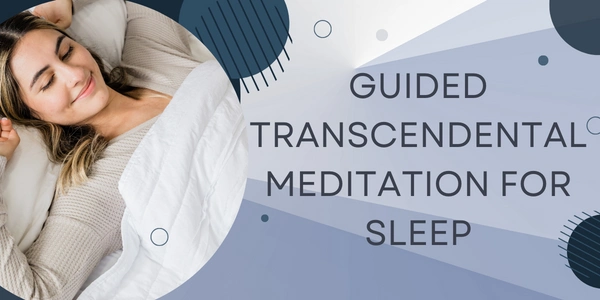
Guided Transcendental Meditation (TM) serves as a companion on your journey to a more restful slumber and inner peace. Unlike the solo experience of traditional TM, guided TM involves the assistance of an experienced practitioner (TM teacher) or audio recordings to lead and support your meditation session. It’s akin to having a gentle guide ushering you into a state of relaxation specifically tailored for a peaceful night’s sleep.
Techniques for Better Sleep through Guided TM
Guided TM offers various techniques to enhance your sleep quality, providing personalized approaches to help calm the mind and body before bedtime. These techniques may involve focused breathing exercises, visualizations, and soothing verbal guidance, all designed to lull you into a tranquil state conducive to a more profound sleep experience.
Benefits for Sleep Disorders with Guided TM Teacher
For individuals grappling with sleep disorders such as insomnia or disrupted sleep patterns, guided TM emerges as a potential aid.
Its structured approach, coupled with personalized guidance, may help alleviate sleep-related challenges by fostering relaxation, easing stress, and establishing a more consistent sleep routine.
Guided Meditation for Deep Sleep: Stress Relief and Mindfulness
Guided TM, crafted explicitly for achieving deep sleep, serves as a sanctuary for stress relief and mindfulness. Through this guided practice of transcendental meditation, individuals can immerse themselves in a restful state, enabling the release of accumulated stress and fostering a heightened state of mindfulness that nurtures better sleep habits and patterns.
Guided Transcendental Meditation for Sleep YouTube
Here is a guided meditation collection to help your meditation journey.
Guided Transcendental Meditation for Sleep from Audible
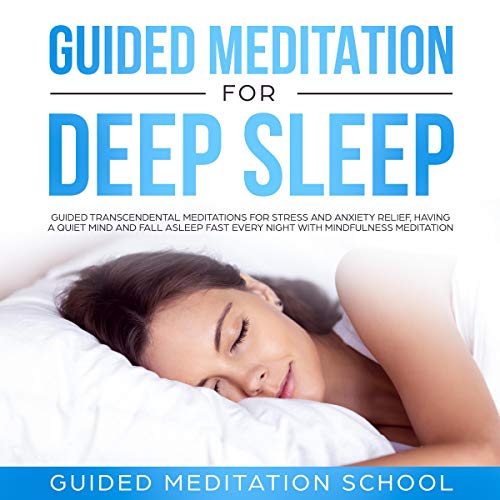
Listen to the sample
Listen free for 30 days
Guided Meditation for Deep Sleep: Guided Transcendental Meditations for Stress and Anxiety Relief, Having a Quiet Mind and Fall Asleep Fast Every Night with Mindfulness Meditation
By: Guided Meditation School
Narrated by: Elizabeth Wilson
Length: 2 hrs and 46 mins
Listen all you want to thousands of included audio books, Originals, celeb exclusives, and podcasts.
Transcendental Meditation vs. Power Nap
In the quest for a midday energy boost or a restorative break, both Transcendental Meditation (TM) and power naps emerge as potential allies. Let’s uncover the dynamics between these two rejuvenating practices.
Exploring Power Nap: The Essence of Brief Rest
A power nap is a short sleep session, typically lasting 10 to 30 minutes, aimed at recharging the body and mind. It’s designed to provide a quick boost in alertness and energy levels, offering a momentary escape from the day’s demands without delving into deeper sleep stages.
TM vs. Power Nap: A Comparative Analysis
| Aspect | TM | Power Nap |
| Purpose | Enhances relaxation, complements sleep | Offers quick energy and alertness |
| State of Mind | Calm, alert awareness | Short-term alertness |
| Duration | Variable (usually minutes) | Short (10-30 minutes) |
| Depth of Rest | Deep relaxation without unconsciousness | Brief recharging without deep sleep |
Why TM Outperforms Power Naps
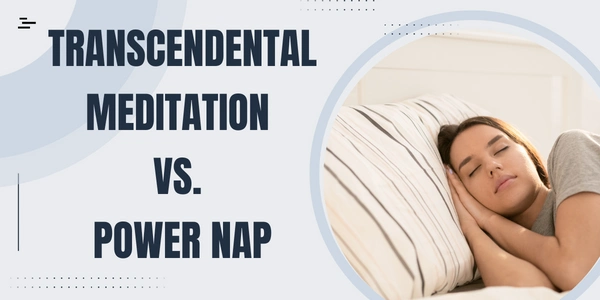
TM surpasses power naps in its ability to provide not just a temporary boost in restful alertness but a holistic approach towards enhancing relaxation and promoting deeper sleep cycles. While power naps offer a quick energy jolt, TM delves into deeper relaxation, complementing sleep quality and fostering a tranquil mind for more profound rejuvenation.
Benefits of TM over Power Napping for Sleep Improvement
Deeper Relaxation: TM offers a more comprehensive approach by inducing a state of profound relaxation beyond the short-term alertness provided by power naps.
Enhanced Sleep Quality: Unlike power naps that target immediate alertness, TM’s influence extends into the night, positively impacting sleep depth and quality.
Long-term Impact: TM’s benefits aren’t confined to immediate wakefulness but extend into the overall improvement of sleep patterns over time.
Adaptability of Power Naps and Transcendental Meditation into Daily Sleep Patterns
Both power naps and TM hold their place in daily routines. Power naps offer a quick respite during hectic schedules, while TM, when integrated into pre-sleep rituals, provides a more long-term approach to enhancing sleep quality. Combining both practices can create a balanced sleep regimen, ensuring both immediate refreshment and long-term rejuvenation.
Concept of Non sleep Deep Rest
In the pursuit of restorative practices, the concept of non sleep deep rest surfaces as an intriguing avenue. Let’s unravel the essence of this notion and its relation to Transcendental Meditation (TM).
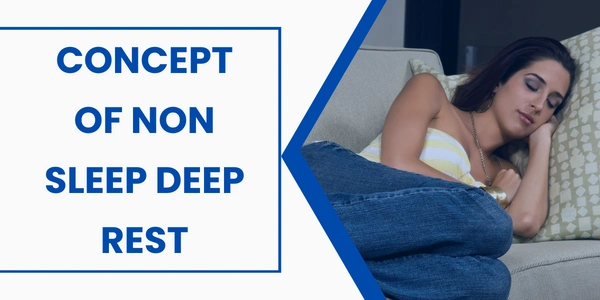
Understanding Non sleep Deep Rest
Non sleep deep rest, a term intertwined with TM, describes a state of profound relaxation that doesn’t encompass the unconsciousness of traditional sleep. It’s akin to a mental sanctuary, where the mind experiences deep calmness, akin to the restfulness experienced during sleep but without the unconsciousness typical of slumber.
Is Transcendental Meditation Non sleep Deep Rest?
TM aligns with the concept of non sleep deep rest. It fosters a state of deep relaxation similar to sleep’s rejuvenating qualities but distinct in its conscious awareness, providing a tranquil respite without the unconsciousness of traditional sleep.
Comparison of Nonsleep Deep Rest and Traditional Sleep
| Aspect | Nonsleep Deep Rest (TM) | Traditional Sleep |
| Conscious Awareness | Maintained | Absent during deep sleep |
| Depth of Rest | Profound relaxation without sleep stages | Cycles through sleep stages |
| Unconsciousness | Absent | Present during deep sleep phases |
| Physical Restoration | Limited | Comprehensive during sleep |
Relaxation and Sleep Induction with Transcendental Meditation Practice
Through TM, individuals experience a deep sense of relaxation, akin to traditional sleep’s restorative effects. The effects of transcendental meditation act as a catalyst for relaxation, guiding practitioners into a state of profound tranquility while maintaining conscious awareness, and providing a bridge between wakefulness and the restful realm of sleep.
Integrating Transcendental Meditation Technique into Sleep Routine
Incorporating Transcendental Meditation (TM) into your bedtime rituals isn’t just about another task to check off your list—it’s about creating a serene bridge from the bustling day to a tranquil night. Let’s explore how to seamlessly weave TM into your sleep routine.
Optimizing TM for Better Sleep
Optimizing TM for better sleep involves nurturing an environment conducive to a restful state. It’s about fine-tuning the practice to align with your sleep goals, ensuring a serene transition into a restorative slumber.
7 Best Practices for Incorporating TM into Pre-Sleep Rituals

- Set the Scene: Create a calming ambiance in your sleep space, dimming lights, and minimizing distractions.
- Pre-Sleep TM Session: Engage in a brief TM session just before bedtime to unwind from the day’s activities.
- Mindful Breathing: Incorporate mindful breathing exercises during TM, syncing your breath with relaxation.
- Comfortable Posture: Find a comfortable position, whether seated or lying down, for a more relaxed TM experience.
- Consistency is Key: Practice TM consistently at the same time each night to signal your body that it’s time to wind down.
- Release Day’s Tensions: Use TM as a mental release, allowing any lingering stress or thoughts to dissipate before sleep.
- Gentle Transition: After TM, gently transition into sleep mode, avoiding stimulating activities that may disrupt your peaceful state.
By incorporating these 7 best practices into your pre-sleep TM routine, you pave the way for a serene and restful night’s sleep, allowing the benefits of TM to intertwine with your sleep patterns seamlessly.
To get the full benefits of TM, try to meditate for 20 minutes twice a day.
Scientific Insight into Effects of the Transcendental Meditation on Sleep Patterns
Embark on a journey into the realm of scientific inquiry, revealing the deep connection between Transcendental Meditation (TM) and the practice of rejuvenating sleep. This thorough examination examines a scientific research study, revealing the effects of transcendental meditation and the tangible advantages that TM provides in improving sleep quality and overall health.
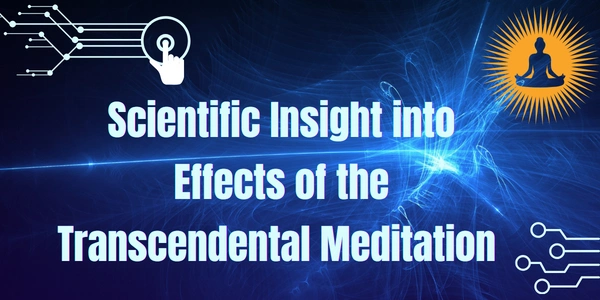
1. Transcendental experiences during meditation practice
The study [1] explores the integration of transcendental experiences during Transcendental Meditation (TM) with waking, dreaming, and sleeping states. Here’s a summary of the important findings related to TM and sleep:
- Transcendental experiences during TM practice show distinct physiological markers: slow inhalation, and heightened alpha (8–10 Hz) frontal coherence.
- Cosmic Consciousness, an integrated state, coexists with waking, sleeping, and dreaming, marked by self-awareness.
- Physiologically, Cosmic Consciousness exhibits alpha and delta EEG during deep sleep, improved brain integration, and reduced anxiety.
- Practitioners reporting inner wakefulness during sleep show higher REM density and increased alpha activity during slow-wave sleep.
- Brainwave patterns during inner wakefulness reveal alpha (transcendental) coexisting with deep sleep (delta) patterns.
- Frontal brain areas play a critical role in these transcendental experiences and higher consciousness growth.
The study highlights how Transcendental Meditation influences sleep, showcasing unique brain patterns and integration of transcendental experiences into different sleep states, offering insights into higher consciousness development.
2. Electrophysiological Correlates of Higher States of Consciousness During Sleep in Long-Term Practitioners of the Transcendental Meditation Program
The study [2] compares electroencephalograph (EEG) readings during sleep in long-term Transcendental Meditation (TM) practitioners experiencing “higher states of consciousness” with short-term practitioners and non-practitioners.
Transcendental consciousness, a state described in the Vedic tradition, involves a silent awareness coexisting with waking, dreaming, and especially deep sleep.
Results:
- Long-term TM practitioners reported witnessing during sleep and exhibited unique EEG patterns during stages 3 and 4 delta sleep:
- Theta-alpha activity was concurrent with delta activity during deep sleep stages.
- Decreased chin electromyograph (EMG) activity during deep sleep.
- Increased rapid eye movement (REM) density during REM periods compared to short-term practitioners.
- The coexistence of increased theta-alpha activity with delta activity during deep sleep in practitioners reporting transcendental consciousness aligns with the Vedic description of higher states.
- Exclusion of alternate factors like age, functional disturbances, arousal, lucid dreaming, and alpha-sleep support the interpretation of distinctive physiological patterns in subjects reporting witnessing during sleep as indicative of a different state of consciousness.
The study demonstrates unique EEG patterns in long-term TM practitioners experiencing witnessing during sleep, indicating physiological support for the Vedic description of higher states of consciousness coexisting with deep sleep.
References
- Travis, F. (2013). Transcendental experiences during meditation practice. Annals of the New York Academy of Sciences, 1307(1), 1–8. doi:10.1111/nyas.12316
- Mason, L. I., Alexander, C. N., Travis, F. T., Marsh, G., Orme-Johnson, D. W., Gackenbach, J., … Walton, K. G. (1997). Electrophysiological Correlates of Higher States of Consciousness During Sleep in Long-Term. Sleep, 20(2), 102–110. doi:10.1093/sleep/20.2.102
Conclusion
In our search for better sleep, Transcendental Meditation (TM) becomes a helpful tool. We’ve learned how TM helps us relax, improves our sleep, and brings calmness without the need for deep sleep.
By adding TM to our bedtime routines and understanding its benefits, we create a peaceful way to relax before sleep, making our nights more restful and improving our overall health.
Read our full article on Transcendental Meditation and OCD Management
FAQs on Transcendental Meditation for Sleep
Does TM Improve Sleep?
Yes, Transcendental Meditation (TM) has been shown to improve sleep quality by inducing relaxation and reducing stress, fostering better sleep patterns.
Is Transcendental Meditation Nonsleep Deep Rest?
Transcendental Meditation (TM) is considered to provide a state of deep rest akin to, but distinct from, sleep, promoting relaxation and rejuvenation.
Is TM Better Than Sleep?
Transcendental Meditation (TM) isn’t better than sleep; it complements sleep by offering a unique state of rest, aiding in stress reduction and relaxation.
How to Fall Asleep Fast?
To fall asleep fast, try relaxation techniques like deep breathing or progressive muscle relaxation, which can ease tension and induce sleepiness.
What meditation is good for sleep?
Transcendental Meditation (TM) is an effective form of meditation known to promote better sleep due to its calming effects on the mind and body.


